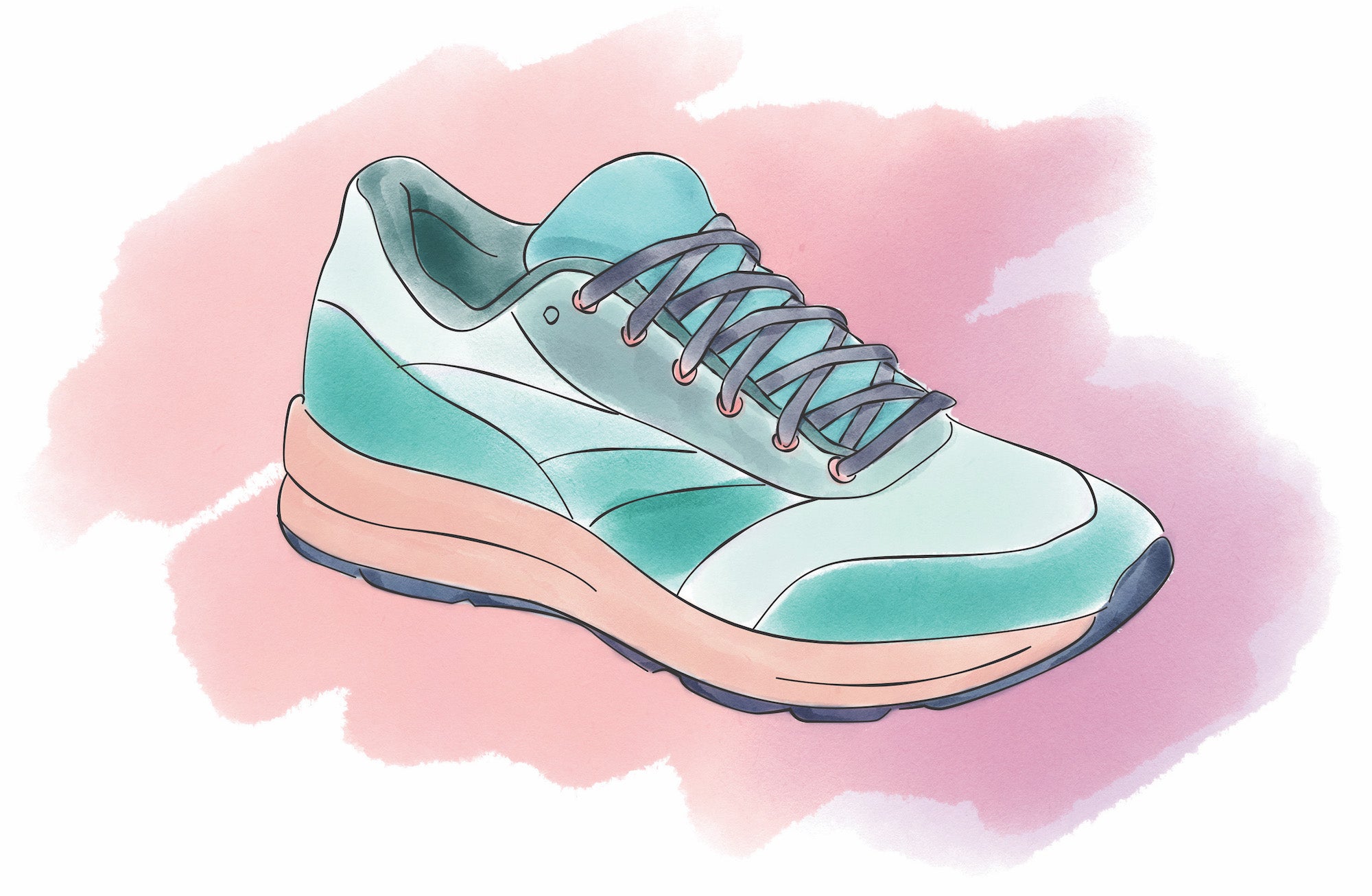How To Pick Running Shoes

Illustration by Oliver Baker.
Newbie runners often ask, “What’s the best running shoe money can buy?” The answer, unfortunately, is “All of them.” But that doesn’t mean every shoe is the best shoe for you or that every shoe is right for every workout.
“If you’re buying your first pair of running shoes, head to your local running store and have an honest conversation with the salesperson about your goals and your limitations,” says Melanie Kann, a New York City–based running coach and self-professed sneaker addict. “When you start trying them on, ignore the price tag (if you can) and the color. Choose the pair that you’re least aware of when you’re running—so you’ll be free to focus on your workout.”
Terms to Know
Whether you’re a beginner or a seasoned marathoner, your shoes fall into one of several categories. Let’s start with neutral vs. stability. The difference has to do with the way your feet move when they hit the ground, and a knowledgeable salesperson can analyze your gait to determine which category best suits you.
If you’re getting serious about speedwork or training for something different (like an obstacle race), you might want to consider expanding your shoe arsenal. Choosing the right shoe for the workout or the terrain can actually help to make you faster.
RELATED: Running Shoes of the Year 2023
Read on to learn about the different types of shoes.
Stability Shoes
If you’re a pronator, your foot tends to roll inward between landing and takeoff. Stability shoes are probably a good bet. Many stability shoes incorporate posts into the midsole to counteract pronation, and these can add weight.
Neutral Shoes
If you naturally land toward the front part of your foot, neutral shoes are an excellent choice. They typically don’t have posts to correct rolling tendencies, which makes them lighter. Neutral shoes are great for runners who like to feel the road.
RELATED: Not Your Mother’s Stability Running Shoes
Racing Flats
Racing flats are built for speed. These minimally cushioned shoes are extremely lightweight, which can save crucial seconds in a race (that’s why all the pros wear them). But be advised that the lack of cushioning in a racing flat will mean more pounding on your legs, so save them for race days or speed sessions on the track. And if you’re going to be on your feet for several hours, you’re probably better off racing in a lightweight trainer.
Trail Shoes
For off-road adventures over roots and rocks, trail shoes offer added stability. They have thicker, heavier soles with big treads for traction. But the features that make trail shoes great for uneven terrain mean they’re not great for road running: Stiffer midsoles can help to keep you from rolling an ankle or slipping on a wet rock, but they don’t offer enough shock-absorption to keep you safe while pounding the pavement.
Gravel Shoes
Looking to split the difference between road and trail? Gravel shoes are perfect for runners who do a little bit of both or run truly on loose gravel surfaces. These shoes are often lighter like a road shoe, but have grippy outsoles for traction like a trail shoe.